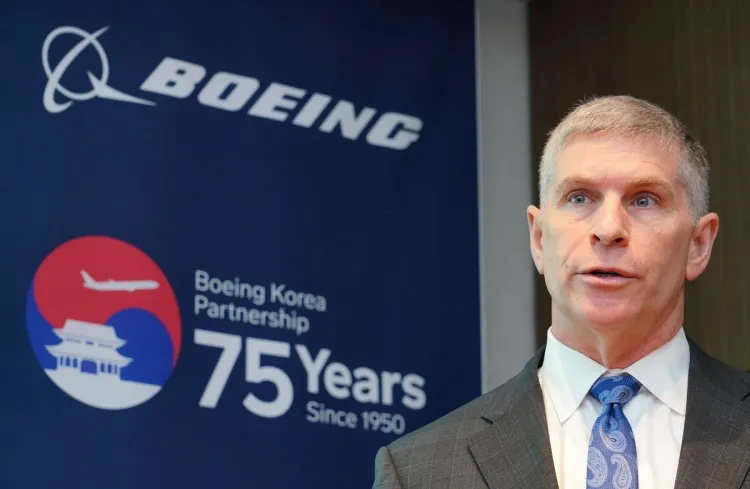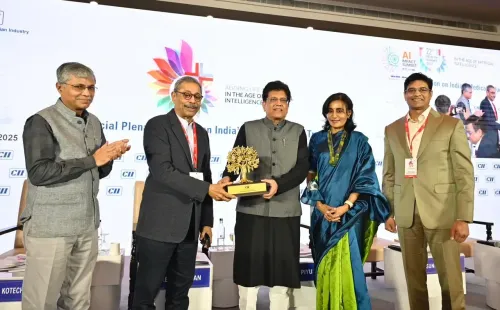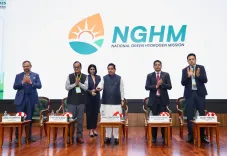Will Boeing Korea Chief Secure Aerospace Tariff Exemption in US Trade Deal?

Synopsis
Key Takeaways
- Will Shaffer hopes for a tariff exemption for aerospace products in trade negotiations.
- Boeing invested US$325 million in South Korea last year.
- The company has a rich history with South Korea, dating back to 1950.
- Boeing aims for a 50% increase in local investments this year.
- Korean Air plans to acquire 103 next-generation aircraft worth $36.2 billion.
Seoul, Sep 24 (NationPress) The President of Boeing Korea, Will Shaffer, conveyed optimism on Wednesday regarding the potential exemption of aerospace products from U.S. tariffs within a trade agreement currently being negotiated between Seoul and Washington.
During a media event held in Seoul to celebrate the 75th anniversary of Boeing Korea, Shaffer emphasized the company's ongoing efforts to maintain tariff-free status for aerospace under a 1979 U.S. regulation, advocating for similar terms in the upcoming bilateral trade agreement, as reported by Yonhap news agency.
"At this moment, I believe the language regarding the potential carve-out for aerospace is still being finalized in the trade deal," Shaffer told Yonhap News Agency. "I am aware that both Japan and Europe have secured carve-outs for tariff-free aerospace, and I hope a similar outcome is achieved here."
As a former U.S. Navy aviator, Shaffer underscored the importance of preserving tariff-free trade in aerospace, which is vital for Boeing’s ability to support customers globally and maintain its international supply network.
He pointed out that Boeing is dedicated to ensuring the aerospace sector remains tariff-free, enabling the company to continue its global customer support and procurement from various suppliers around the world.
When questioned about the potential repercussions of U.S. tariffs under President Donald Trump on Boeing's operations in Korea, Shaffer mentioned that the company is collaborating with the U.S. government to minimize disruption, noting, "there are various strategies we have in place to mitigate the impact of these tariffs."
He further acknowledged Boeing's strong commitment to its partnerships with Korean suppliers and customers, despite facing challenges, such as the large-scale U.S. immigration raid involving Korean workers in Georgia.
"We continue to uphold robust business relationships with both our industry partners and customers, and we are committed to supporting legal immigration processes," he said.
Shaffer also recognized South Korea as a critical ally in the future aerospace industry, projecting that local investments could potentially increase by up to 1.5 times.
Boeing disclosed that it invested US$325 million in South Korea last year, which represents the total value of defense and commercial aircraft components procured from Korean partners, including Korean Air Co. and Korea Aerospace Industries (KAI) Co., positioning South Korea among Boeing's top five to six investment destinations globally.
Considering the business outlook for Boeing and production ramp-up plans for aircraft models such as the B737, B787, and B777-9, Shaffer anticipates that investments in the South Korean market could rise by as much as 50 percent this year.
Boeing's partnership with South Korea dates back to 1950, when it provided the DC-3 passenger aircraft to the country’s inaugural civil airline, Korean National Airlines, the precursor to Korean Air.
Last month, Korean Air announced plans to acquire 103 next-generation Boeing aircraft, including the B787-10, valued at $36.2 billion, making it the largest aircraft order in the airline's history.









